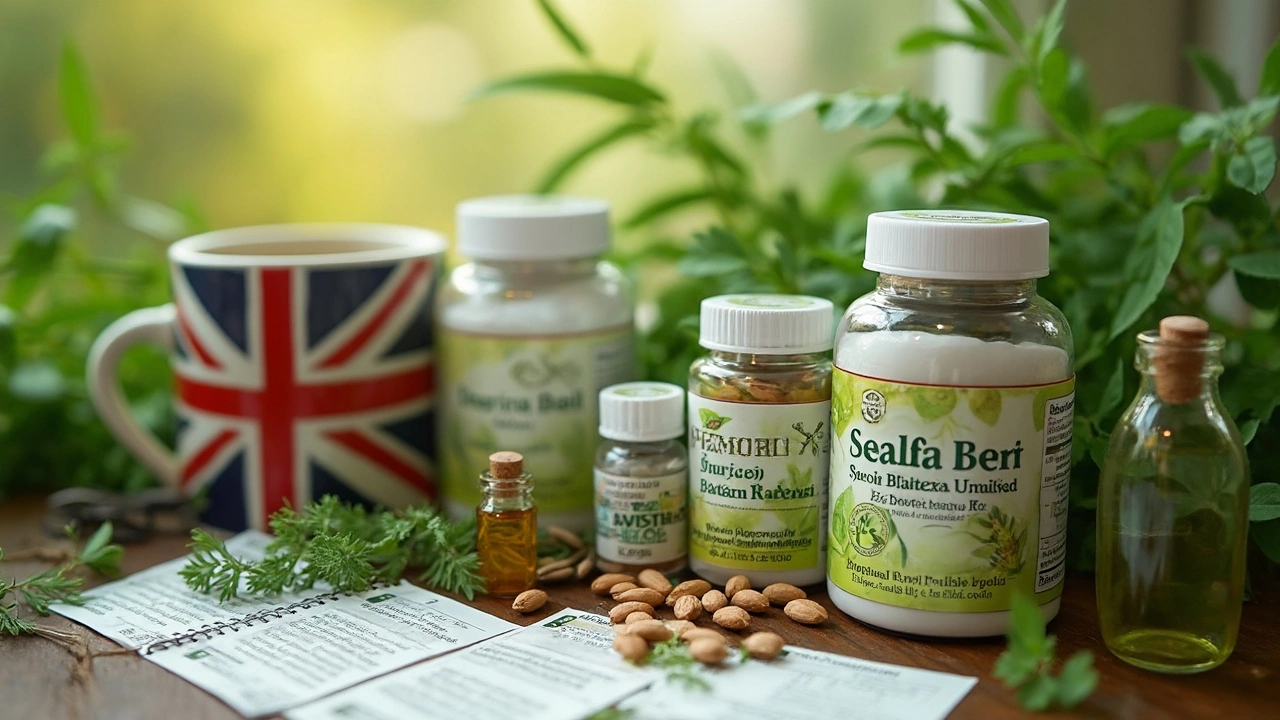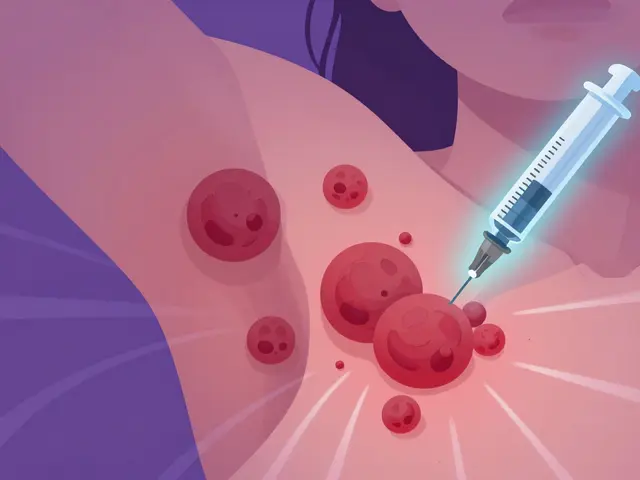Longing for a baby is emotional enough on its own—the monthly guesswork, the constant ‘what-if’ chatter in your mind, and the frustration when things don’t seem to go your way. Then you dive into the world of fertility solutions, and suddenly you’re lost in a sea of herbal teas, tinctures, and capsules promising to be the magic bullet. There’s no shortage of opinions online, but what really works when it comes to herbal fertility supplements? Not every bottle at your local chemist will make a difference, so why waste time and money with empty promises?
Some botanicals actually have science to back up their effect on fertility and ovulation. If picking the right supplement feels like spinning a wheel, you’re in the right place. Let’s unpack what recent research says about the most popular natural fertility boosters—starting with those that have real evidence (not just folklore or hype). Whether you’re just getting curious or you’re collecting your next batch of supplements, here’s the lowdown on what’s actually worth your attention if you want to boost your chances naturally.
How Vitex (Chaste Tree Berry) Stands Up in Fertility Research
Vitex agnus-castus, better known as chaste tree berry, is probably the herb you’ve seen everywhere if you’ve googled ‘fertility supplements’. This plant goes way back in human history as a go-to for women’s health. What makes it so popular today? Well, researchers have actually dug into its impact on hormonal balance and ovulation. It’s not just an old wives’ tale.
Let’s get specific. Vitex is known for gently nudging your pituitary gland—the part of the brain that tells your reproductive system what to do. By encouraging production of luteinizing hormone (LH) and supporting healthy progesterone levels, vitex can help with luteal phase defects and irregular cycles—two really common issues if you’re struggling to conceive. According to a German study from 2016 with over 800 women, vitex was linked to normalized cycle lengths and increased rates of ovulation compared to placebo. That’s not small potatoes.
People often ask: Will vitex work for everyone? The truth is, it seems most effective if your issues relate to mild hormonal imbalance or irregular periods—not major endocrine disorders. Anecdotally, some women see their cycles even out in three months; for others, it’s more subtle. One useful tip: take vitex in the morning, since that’s when your body naturally signals your reproductive hormones. Start with a low dose and work up as needed, because herbs aren’t ‘stronger is better’—timing and consistency are what count.
Have you ever seen supplement blends with extra vitamin B6 or maca root? That’s because these can support vitex and make results more reliable, especially if your cycles are super unpredictable. But always check for reputable brands—there’s a lot of variety in what’s actually inside a bottle. Stick to standardized extracts (most studies use 20-40 mg of extract per day). Here’s a quick data snapshot from recent clinical trials:
| Study | Participants | Outcome |
|---|---|---|
| German randomized trial (2016) | 800+ women | Normalized cycles by 3 months; ovulation rates up 15% |
| Systematic review (2021) | 5 studies | Improved luteal phase defect symptoms; minimal side effects |
If you’re thinking about other natural Clomid alternative options, vitex is usually right up there on the list for anyone aiming to sidestep synthetic hormones. You still want to chat with your doctor if you’re on other meds or have a diagnosed hormonal condition, but it’s earned its spot in the ‘worth a try’ category.

Myo-Inositol and Its Role in Ovulation—Not Just for PCOS
Myo-inositol might sound like a chemical out of a sci-fi movie, but it’s actually a vitamin-like compound, naturally found in fruits, beans, corn, and even your own body. If you’ve heard the term while scrolling through fertility forums, you’re not alone. Myo-inositol is catching on for its role in helping regulate insulin and restore regular ovulation, especially if you’re battling polycystic ovary syndrome (PCOS).
Still, you don’t have to have PCOS for myo-inositol to shine. This supplement is all about cellular communication—basically letting your hormones talk to your ovaries the way they’re supposed to. In one double-blind trial with 120 women, supplementing with 2 grams of myo-inositol twice daily lead to nearly 70% resuming regular ovulatory cycles in 3 to 6 months. That’s a massive bump for something you can get at the health food store.
Myo-inositol is especially promising if you’ve noticed things like unpredictable ovulation, mild insulin resistance, or weight gain alongside fertility woes. But here’s the wild thing: it also seems to improve egg quality and embryo development. And while guys usually get left out of the conversation, research suggests myo-inositol might even help with male fertility (improving sperm motility and count).
Worried about side effects? Myo-inositol is incredibly mild. Some people notice looser stools at high doses, but otherwise, it’s about as low-risk as it gets. Pairing it with D-chiro-inositol (in a 40:1 ratio—don’t panic, most reputable supplements are pre-formulated this way) seems to deliver even better results, possibly because it mimics natural ratios in the ovaries themselves.
| Study Year | Participants | % Resuming Ovulation |
|---|---|---|
| 2011 | 120 women with PCOS | 69.3% |
| 2017 meta-analysis | 845 women | Improved oocyte quality, ongoing pregnancy rates up 22% |
If you’re considering options for ovulation support but wary of side effects of prescription meds, myo-inositol is a straightforward starting point. It works well with other supplements too (like folic acid and omega-3s), and it’s widely available without a prescription in Australia. I’ve noticed more fertility clinics in Sydney recommending it right alongside, or even before, they turn to pharmaceuticals.

Other Botanicals Shown to Support Fertility & Ovulation
Let’s step outside the familiar and look at some herbs that don’t get the same fanfare, but have demonstrated real effects in scientific studies. There’s more to natural fertility boosters than just vitex and inositol, after all. Maybe you want to customize your approach or see if a blend could give you that extra edge?
First up, maca root. If you’ve wandered the supplement aisle lately, you’ve probably seen this Peruvian tuber root promising to support everything from energy to libido. Turns out, it also helps regulate reproductive hormones (LH, FSH, estrogen), and a couple of trials have found it can boost the number of mature follicles and improve cycle regularity. It also has a reputation for improving sperm count and quality—so a good pick for couples trying together. One randomized controlled trial from 2020 tracked women over four months of maca supplementation and saw a 12% increase in ovulation frequency. That’s more than just wishful thinking.
Next in line: Tribulus terrestris. This isn’t on as many people’s radar, but in a 2017 trial, women with anovulatory infertility took tribulus extract and saw ovulation resume in just five weeks for over half of participants. It appears to gently stimulate the ovaries and balance androgens (those pesky male hormones that can throw things off for women with PCOS or irregular cycles).
Don’t forget about cinnamon—as plain as that sounds. Consuming a daily cinnamon supplement (usually 1-1.5 grams) helped regulate cycles in some women with PCOS, possibly by reducing insulin resistance and lowering androgen levels. There’s even data showing better pregnancy rates in some groups, likely due to improved blood flow to the reproductive organs.
- Tip: Most herbal supplements deliver best results when taken consistently for at least 3-6 months. That’s because herbal compounds take time to gently shift underlying patterns, not just give a quick jolt to your system.
- Always check for interactions. Just because something is ‘natural’ doesn’t mean it’s perfect for everyone. Talk to your GP, especially if you’re on medication for thyroid, blood sugar, or mental health—these systems are all connected.
- Shop smart. Quality matters more than ever. Go with brands that use standardized extracts and can provide batch testing. It might cost a bit more, but you don’t want fillers or mystery ingredients landing you back at square one.
Still curious about other options out there? Remember, not every herbal product gets the science-star treatment, so keep an eye out for ongoing studies. If a new herb claims instant results, dig a little deeper before filling your basket. The best fertility supplements are about patience, routine, and the right match for your body. And always watch for herbal fertility supplements that list actual dosages and scientific backing, not just a bunch of hard-to-pronounce names on the label.







Linda Stephenson
June 4, 2025 AT 22:46